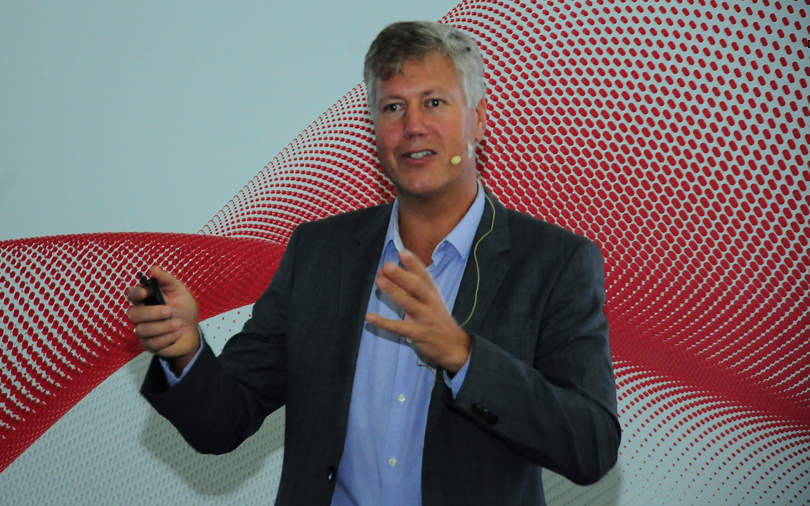
India is driving digitalisation of motors and drives: Morten Wierod, ABB


ABB spends half of its annual research and development (R&D) budget on software development for its motion business, Morten Wierod, who heads the business at the Zurich headquartered power and electrical equipment giant, told TechCircle. Further, half of the firm’s R&D workforce is also dedicated to the motion business.
Under its motion business, ABB sells motors and drives for use in industries such as metal, paper and pulp, cement, marine, breweries and distilleries and food processing. It is estimated to be a $80 billion market globally dominated by players such as Siemens, Toshiba, Johnson Electric and Rockwell Automation.
Software applications now account for the bulk of the total contract value in the motion business, alongside motors and drives. A third of the company's customers have adopted digitised motors and machines and India and China are among the top markets globally in terms of adoption.

"The applications and software business now contributes more than 50% of the value in a deal. Increasingly, the software and applications, which help us offer customers digital services become the USP for buying the hardware. From making the best motor or drive to the best software that connects the hardware or what we call as digital powertrain," he said.
Within the motion business division, Asia accounts for around 40% of the R&D workforce, which is huge considering that a decade ago, the company had all its R&D staff in Europe. The company’s research offices in Bengaluru and Beijing are its hubs for Asia and most of the activity is concentrated in software development.
The digital services range from periodic maintenance and constant monitoring to increasing reliability and reducing the chances of downtime. Critical applications like the running the propulsion of ships, which cannot fail, are also controlled and monitored on a real-time basis. Wierod said that while combustion to electric is one step in the digitalisation journey, the other step is live monitoring using sensors and internet-of-things technologies.

The company has an "Ability" platform on Microsoft Azure, where all of ABB's applications are running, which can be integrated with customer and partner platforms. It also has partnerships with IBM and HPE.
Electrification is taking place across industries from locomotives and ships moving towards an electric propulsion system. For instance, electrification is replacing hydraulics in large cranes used in the shipping industry. Similarly, the software ensures the perfect swag control for cranes ensuring that emptying a container takes only half the time.
"Here in this case, the value the customer generates because of the software is much higher than the 50%," said Wierod. "For customers, reliability and reducing unplanned shutdowns are the key reasons for embarking on a digital transformation path. It could cost hundreds of thousand dollars for them even stopping for a few seconds," he said. The adoption rates are higher in industries such as metal mills, paper, cement, industries that use compressors and oil and gas, where the shutdowns could be prohibitively expensive.

But the industry has not moved into an outcome model whereby ABB is paid on reducing unplanned shutdowns. "It is still early days. But people have moved away from reactive maintenance," he said adding that it is a different risk model and require different operational strategies from ABB as well as customers.
This paradigm also leaves both ABB and its customers in a quandary. "Ultimately who saves the money in reactive maintenance. We or the customers," he said. The return on investment though is usually shorter and is gained in one to two years depending on the industry, he added. The company gives customers advice on the basis of the data it collects from these machines.
While it will take some more years before ABB starts selling the motors and drives along with software-as-a-service, Wierod said that even when that happens it will not lead to fragmentation of service providers as most customers would not want to enter into multiple contracts for running a single motor or drive. So that will lead to most enterprises sticking to an electrical machine provider like ABB as well as a few IT service providers.

Large enterprises are ready to adopt digitalisation at a much higher scale but for the concerns regarding cybersecurity. "All assets being connected to the cloud should be cyber-secured and customers want 100% guarantee on that," said Wierod.
